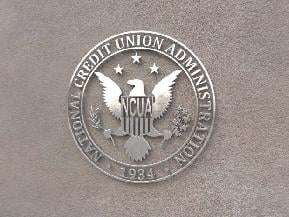A CUSO that specializes in helping firms image and store their documents electronically has warned credit unions that electronic storage may not be best for all their mortgage documents.Bret Weekes, CEO of eDOC Innovations, a CUSO specializing in electronic documents and documents storage, reaffirmed the CUSO’s belief that all loan documents will eventually be originated and handled electronically. But he also noted that policies, procedures and markets, particularly the secondary market for first mortgages, had not yet evolved to where it can easily handle mortgages originated only electronically.“Right now we are cautioning our credit union and CUSO partners, especially when it comes to first mortgages, that they keep the originals in hard copy. They might not be able to sell them otherwise,” he said.The CUSO cited a bulletin posted by the Washington State Department of Financial Institutions warning credit unions using an electronic imaging and storage system for their mortgage loan documentation of an additional worry about keeping mortgage documents only electronically: litigation.Questions about the role of imaged mortgage documents have arisen as part of litigation in some cases, particularly foreclosure litigation, the CUSO reported.“We recognize that although the ESIGN ACT clearly establishes legal validity for electronic forms, exclusions related to ‘life sustaining services’ do apply. Therefore, we encourage our peers who are engaged in first mortgages to maintain the actual note and other original mortgage documents such as titles in their paper form to mitigate risk in litigation and to accommodate the possibility of secondary-market distribution,” Weekes said.The problem rests in the varying definitions of what a “life sustaining service” would be when it comes to electronic mortgages. Weekes explained that the ESIGN law offered examples of life sustaining services that would not be covered by the law, including utility agreements and leases. It’s unclear, he said, or it varies from state to state, whether taking out a mortgage would be considered a life sustaining event.The CUSO also observed that issues in litigation, in its experience, have not been related to the image itself but instead to questions that arose in court related to the credit union’s procedures and processes that ensure “original authenticity” of the document through sound business practices.“There are no real examples of electronic documents being challenged in court only on the grounds that they are electronic,” Weekes observed. “Instead they have been challenged on the grounds that their procedures are muddled or that the borrowers didn’t understand what they were signing electronically when they signed it.”“In the cases with which eDOC is familiar, relating to credit unions using the eDOC system, none have experienced losses in their litigation,” the CUSO said in its release.Mike Delimont, program manager for the Washington State DFI’s division of credit unions said the regulator wanted to alert credit unions that documents that had been signed in ink but then scanned for storage were not covered by ESIGN. Weekes echoed that distinction, noting that signed and scanned documents were not the same as documents which were originated and closed electronically and then afterward might have to be printed out in hard copy.By coincidence, at about the same time eDOC issued its cautionary press release, the $1.7 billion Michigan State University Federal Credit Union demonstrated electronic mortgages to the media on Oct. 29. On that day, members finalizing their mortgage documents did so entirely through touch screen computers with the media watching and asking questions.“Giving our members electronic access to online applications, closing documents, and finally the convenience of an e-closing, all enhance our members’ experience with MSU Federal Credit Union,” said Jeffrey Benson, vice president of operations for MSU Federal Credit Union.“We want to be the first lender our members think about when it comes to financing their homes, vehicles and other things necessary to their lifestyle. Being a leader in electronic services enhances our relationship with our members,” he added.The credit union has been closing mortgages electronically since April but withheld publicizing it until October, the CU said.The closing table is converted from pen and stacks of paper to digital documents and touch screens, the credit union said. Once the closing is complete, the member receives a flash drive or CD with all the documents loaded to take home and store for future use. Documents are also stored online at the credit union for future review. The e-closing is a product of Stewart Title, a subsidiary of Stewart Information Services Corp.Joyce Banish, vice president of university and community public relations for the credit union, explained that one advantage of the electronic closing is that someone interested in the closing, a spouse while traveling for example, could also take part in the closing at the same time through an e-closing link with other Steward Title offices. A traveling spouse of the other interested party could be in the other Stewart Title office in the other location and still take part in the closing through the touch screen technology.Banish also reported that while the credit union endorsed and used electronic mortgage origination and closing, it made sure that it got hard copies with ink signatures for all of its mortgages, in part to make sure that recorders of deeds in the smaller Michigan counties would accept them.“Our larger counties here accept electronic mortgages, but many of our smaller counties do not,” she said.–[email protected]
 Search
Search














 Copyright © 2024 ALM Global, LLC. All Rights Reserved.
Copyright © 2024 ALM Global, LLC. All Rights Reserved.